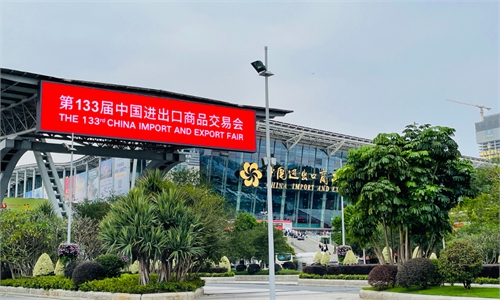
CPTPP photo: VCG
China is advancing the process of joining the Comprehensive and Progressive Agreement for Trans-Pacific Partnership (CPTPP), and it has submitted documents for its accession to the pact, a Chinese senior official said on Saturday.
China has the willingness and capability to join the CPTPP. It has conducted in-depth and comprehensive research and evaluation on more than 2,300 articles of the CPTPP, and sorted out the reform measures, laws and regulations that need modification for its accession, Wang Shouwen, vice minister of the Ministry of Commerce (MOFCOM), said at the Asia-Pacific Economic Cooperation China CEO Forum held in Beijing.
In order to align with the high standards of the CPTPP, China has implemented a pioneering approach of reform and opening-up in related fields. The country's accession will benefit all members of the CPTPP and inject new impetus into trade and investment liberalization in the Asia-Pacific region, Wang said.
"China's remarkable efforts in boosting its accession to the trade bloc underscore the country's commitment to high-level opening-up, as 99 percent of merchandise trade under the CPTPP framework will be at zero tariff," Bai Ming, a research fellow at the Chinese Academy of International Trade and Economic Cooperation in Beijing, told the Global Times on Sunday.
The CPTPP entered into force in 2018 after the US withdrew from what had been known as the Trans-Pacific Partnership.
Currently, the Asia-Pacific bloc has 12 members after it accepted the UK in March.
If China is accepted as a new member, the current trade scale of the CPTPP will be greatly improved and yield positive spillover effects for CPTPP members, Huo Jianguo, vice president of the China Institute for World Trade Organization Studies, told the Global Times on Sunday. He said China's accession to the CPTPP will boost the country's high-level opening-up and contribute to its economic recovery.
"China will continue to open its doors for development and actively promote high-level opening-up. China has basically relaxed the access of foreign investment in the manufacturing industry, and is comprehensively and systematically opening up the services sector," Wang said. He said the country will reasonably reduce the negative list of foreign investment access, launch more free trade pilot zones, and create a nationwide negative list of cross-border services trade.
Recently, several executives from global multinationals visited China to seek greater opportunities, reflecting their confidence in China's promising development prospects, Huo said.
Huo said the country's abundant and high-quality labor resources, secure, stable and efficient supply chains, and a market of 1.4 billion people are advantages in attracting foreign investment.
On Wednesday night, Microsoft co-founder Bill Gates tweeted that he had arrived in Beijing for the first time since 2019. Before him, a flurry of CEOs and senior executives from major multinationals, covering consumer electronics, technology, finance and others, visited China. Among them, some of the high-profile names are Apple CEO Tim Cook, Tesla CEO Elon Musk and JPMorgan Chase & Co's CEO Jamie Dimon.
According to the MOFCOM, foreign direct investment (FDI) from countries including France, the UK and Canada increased by more than 100 percent year-on-year in the first five months of the year, with FDI from France surging by 429.7 percent.
"Guided by institutional opening-up, the establishment of an international, law-based and market-oriented business environment is crucial for attracting more foreign capital," Bai said. He noted that reforms to streamline the government, delegate power, and improve government services should be strengthened in order to ensure follow-up services for foreign investment and national treatment for foreign-funded enterprises.



